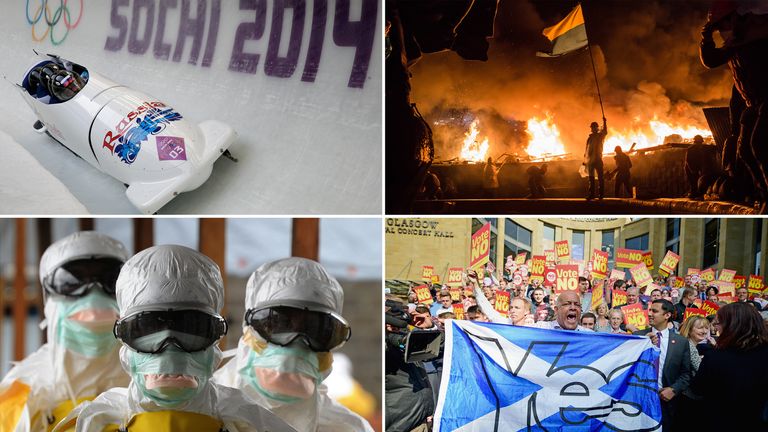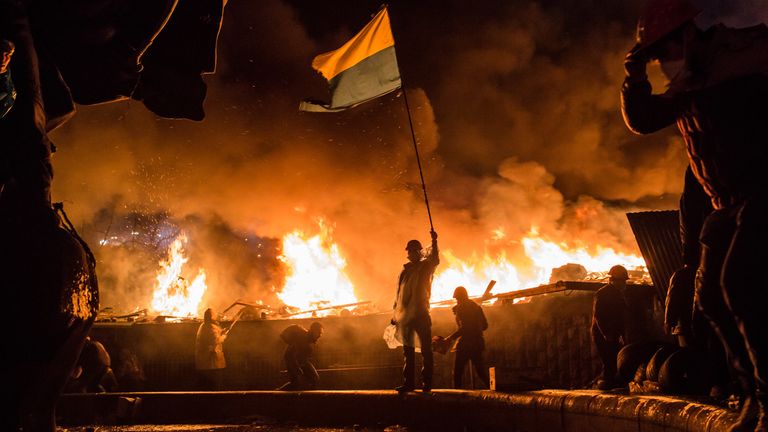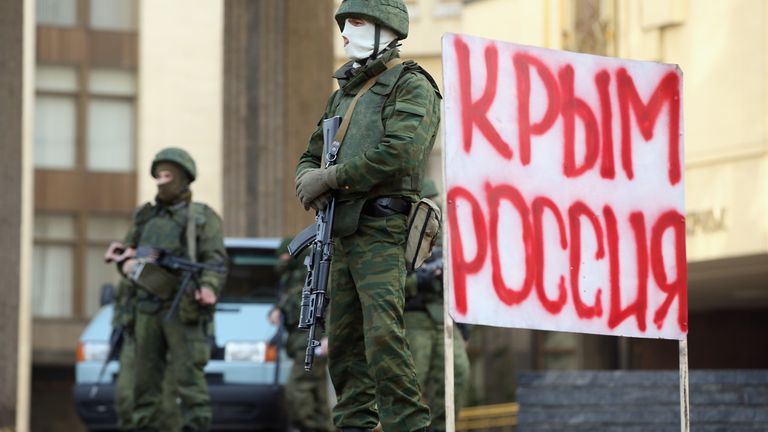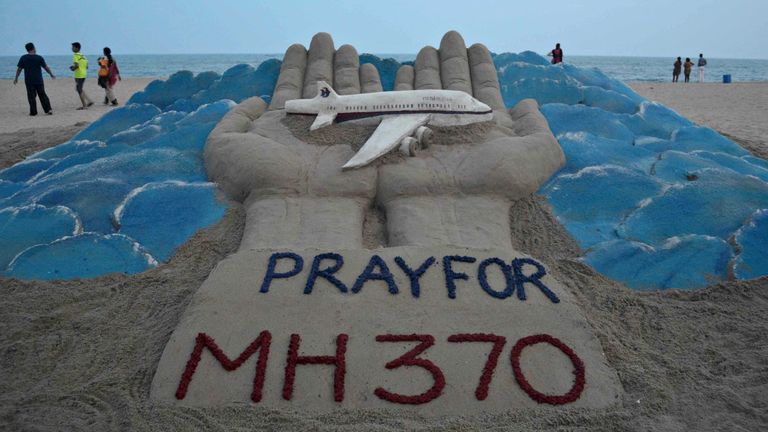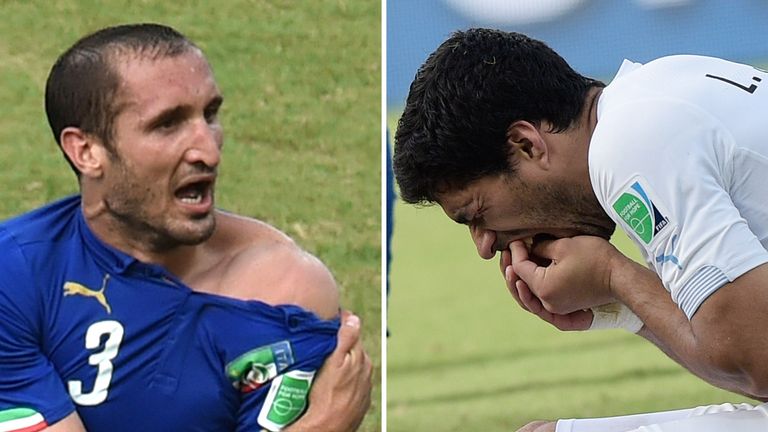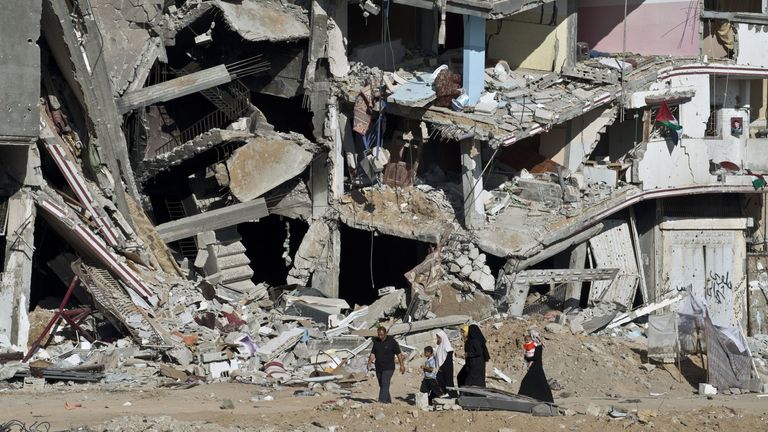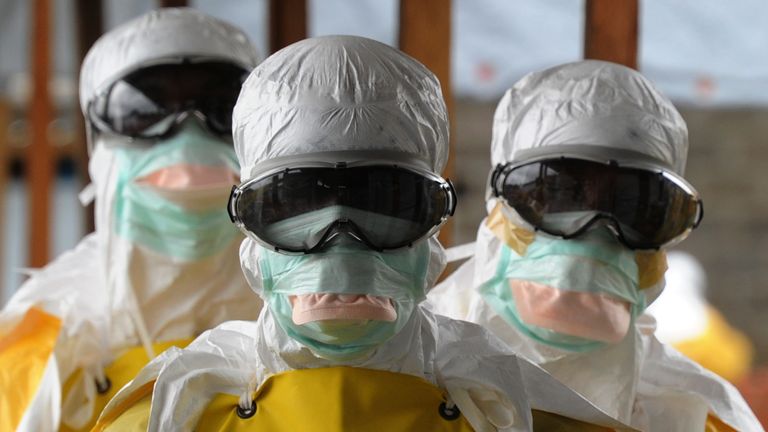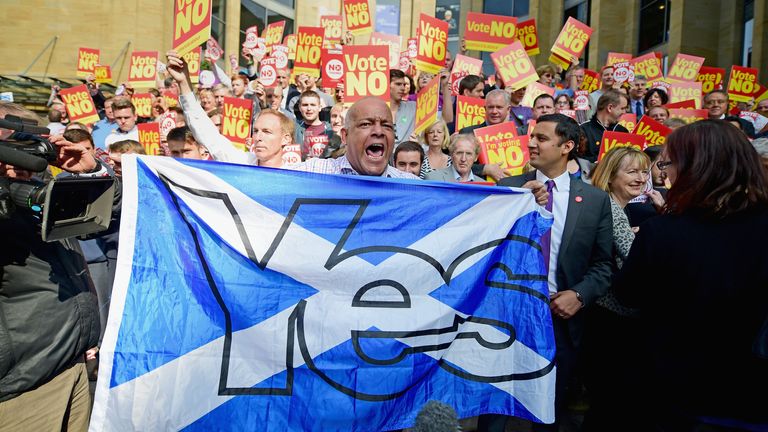Decade in Review: A look back at what happened in 2014
Sky News is looking back at all the biggest news events of the past decade.
Tuesday 31 December 2019 09:36, UK
The fifth year of the decade was a momentous one for news, with several major international events, the after-effects of which are still rippling around the world to this day.
Decade in Review: 2010, 2011, 2012, 2013, 2014, 2015, 2016, 2017, 2018, 2019
Winter Olympics in Sochi - 6 February
Holding the Winter Olympics in Russia had proved controversial even before the event started, because of Russia's human rights record.
The Russian authorities had spent $51bn - the most on any Olympics - on making it a success. The problem was they chose a resort that, in the summer at least, was known for its warmth. As visitors arrived in a rainy Sochi, organisers were hurriedly utilising stockpiles of snow kept from previous years to make sure there was a ski and snowboard slope to race down.
Russia was desperate for the games to be a success. How much only became apparent several years later when rumours of a state-run doping programme were confirmed by a whistleblower who said that at least 15 of Russia's medals were won as a result of urine samples being swapped at a laboratory run by Russia.
When it was discovered, the fall-out led to Russian athletes being banned from a series of international sporting events, including the 2016 and 2020 summer Olympics.
Ukrainian Revolution - 18 February
Successive governments in Ukraine had sought closer relations with the European Union but had been hindered by the links of many in power to the Kremlin. It came to a head when the government of Viktor Yanukovych, who was among the pro-Russians, was negotiating an agreement with the EU, and appeared to be stalling progress.
Protests broke out, centred on Kiev's Maidan Nezalezhnosti (Independence Square), and soon became violent, with nearly 130 dying during clashes.
Yanukovych was forced to flee and the Russians declared the revolution an illegal coup. In the aftermath, images emerged of a plush palace where the former president had been able to live in luxury, bedecked in gilt, marble and crystal.
Pro-European Petro Poroshenko took over after an interim leader and Russia became deeply unhappy at the loss of influence in the country which had been part of the Soviet empire only 25 years before.
Russia annexes Crimea - 27 February
Almost as soon as the dust began to settle from the Maidan revolution, strangely uniformed armed men began appearing in Crimea, a peninsula considered by most UN members to be part of Ukraine but the site of a Russian base.
Although the men's uniforms bore no insignia, it emerged later they were Russian special forces and within days they had seized the regional parliament and erected Russian flags.
While Moscow claimed Crimea was in the midst of a counter revolution, independent journalists were prevented from witnessing what was happening. A referendum was allowed, but without independent monitors, and 95% of the ballot papers backed joining Russia.
Crimea's annexation had long lasting and serious consequences. Not least because it encouraged others to seek independence from Ukraine and resulted in pro-Russia militants in the eastern Donbass region attempting to secede.
The resulting war, which is ongoing, left at least 12,800 dead, according to the UN, some 3,300 of whom were civilians.
During the early months of war, the Malaysian Airlines flight MH17 was shot down, killing 298. Pro-Russian forces were blamed by an international investigative team.
MH370 vanishes - 8 March
When Malaysian Airlines flight 370 from Kuala Lumpur to Beijing took off at around 12.42am, nothing had occurred to indicate anything was wrong.
About 15 minutes later, the captain of the Boeing 777-200 said "good night" to local air traffic control and he was told to sign on with Vietnamese controllers.
Before he did so, the plane disappeared from radar screens and only reappeared briefly hundreds of miles off course, to the northwest of Malaysia.
When it emerged a digital 'handshake' with the plane indicated it was travelling along a corridor that spanned a large section of the Indian Ocean, a massive search ensued, costing millions of dollars.
Even to this day only a few sporadic chunks of wreckage have ever been found. Nothing has ever been discovered as to the fates of the 239 people on board.
Gangnam Style reaches 2 billion views on YouTube - 1 June
The K-pop single, by South Korean musician Psy, had been released in July 2012 and quickly swept dancefloors around the world.
Its dance moves were attempted to various degrees of success by political leaders including David Cameron, Barack Obama, UN head Ban Ki-moon and astronauts.
Partly because the song's popularity was based on the dance moves that accompany it, and the rise of YouTube as a medium through which people increasingly began to consume music, the video went viral, putting on millions of views a day.
It passed the one billion views mark after a few months and even now remains the seventh most viewed YouTube video of all time.
Its reach heralded the rise of K-pop and the increasing popularity of South Korean artists - the so-called Korean wave - later followed by acts such as BTS.
Luis Suarez bites competitor at World Cup finals - 24 June
The man, who was at that time one of the world's most famous footballers, had form for biting, having been accused of injuring players in 2010 while playing for Ajax and 2013 while playing for Liverpool.
By the time of the 2014 World Cup finals in Brazil, because of his antics, he was not only one of the most successful players in the world, he was also one of the most notorious.
He was ranked number one in a list of "most influential European players", and won the Premier League's Golden Boot, but had recovered from a troubled time at Anfield.
Uruguay needed to win their highly anticipated 24 June match with Italy to advance to the knockout stage, and with the score at 0-0 in the 79th minute, Suarez clashed with defender Giorgio Chiellini in the box.
Replays showed he bit him on the shoulder. Uruguay eventually won, knocking Italy out.
FIFA came down hard on Suarez, banning him for nine international matches. But the Uruguayan FA complained, accusing FIFA of European bias.
The furore helped bring the tournament to life, after earlier fears of potential violence and crime, with the final won by a European team for the first time on continental American soil - Germany.
Abu Bakr al Baghdadi announces establishment of an Islamic State - 29 June
Islamic State of Iraq and the Levant (ISIL) had been empowered by a series of military successes in the power vacuum of Iraq, concluding with the takeover of Mosul a few months earlier.
The fighters, who practised a radical form of Islam based on antiquated principles and came from around the world, consolidated territory around the Syrian city of Raqqa, imposing a brutal regime upon the population.
The group proclaimed Baghdadi caliph and changed its name to Islamic State (IS). In response, he called on Muslims around the world to join them in their self-declared Caliphate in Iraq and Syria.
IS fighters went on a rampage across the region, raping Yazidi women in Sinjar, murdering men in northern Iraq and northeast Syria and demolishing precious relics. Western allies responded by launching airstrikes in a campaign that lasted four years.
It took until 2019 before IS was defeated in Syria, with Baghdadi killing himself during a US operation in October. IS remains a potent force around the world and has inspired numerous terror attacks in the years since 2014.
The second Israel-Gaza war - 8 July
Following the kidnapping and murder of three Israeli teenagers by Hamas militants, the Israel Defence Forces began a sustained campaign to tackle the group in Gaza.
Hamas had been in power in the strip since 2007 and had been regularly irritating Israel by firing rockets into the country. Israel had responded by imposing a blockade, putting the population under considerable pressure.
During the seven-week war, the IDF said Hamas and its allies fired 4,564 rockets and mortars at Israel, causing millions of dollars worth of damage. Meanwhile, Israeli action against Gaza resulted in more than 2,000 Gazans being killed, thousands more being wounded and up to a quarter of all houses being damaged.
A ground invasion resulted in the destruction of dozens of supply tunnels, but in the years afterwards rocketing resumed and Palestinians continued to protest against the restrictions upon them.
Ebola epidemic in west Africa - September
Ebola had actually started infecting people from Guinea months before the start of 2014 but it was after it spread to neighbouring Sierra Leone and Liberia that the epidemic really took off.
Between July and September that year, the number of deaths surged from a few hundred to more than a thousand as the epidemic took hold.
The disease peaked in October as authorities struggled to cope with an illness that killed most of the people who became infected.
Ebola was only stopped after an international effort sent medics and military personnel to the region to help isolate those who needed treatment.
Several foreign workers were infected and at least one died. Some of the practices developed have helped in subsequent outbreaks and the world has since advanced its understanding of the virus and is testing various vaccines.
Scottish referendum - 18 September
Ever since devolution and the growing success of the Scottish Nationalist Party, calls had grown for Scotland to be given the chance to vote on whether to split from the rest of the EU.
The campaigns were launched up to two years before the vote, but as time went on, the arguments became increasingly strident and bitter.
With just days to go, as the polls indicated Scotland could separate, those in favour and against traded blows over issues such as the currency, Trident, North Sea oil and the consequences for EU membership.
It was reported that the Queen had encouraged people to "think very carefully" about the future they chose.
In the end, the result wasn't as close as had been expected with 44.7% voting for Scotland to become independent and 55.3% voting to stay part of the union.

